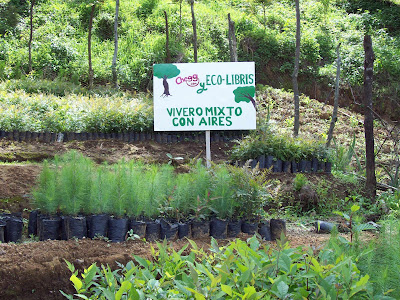 "Only 26 years” said the beekeeper, “this is how long we have. After that, you will be eating only corn, wheat and rice.”
"Only 26 years” said the beekeeper, “this is how long we have. After that, you will be eating only corn, wheat and rice.” We were enjoying a sunny afternoon at the Port Townsend farmer's market on the north eastern end of the Olympic peninsula. I just had a yummy raw pizza and the xylophone band were in the middle of their second exhilarating set. People from all walks of life were taking the time to stop when meeting and have long conversations before heading home with bountiful fresh produce in their tote bags. We stopped at the beekeeper's honey booth for a chat. “Yes, you see all these farmers?” he continued, pointing at other stallholders selling fresh vegetables and herbs, “Some of them are starting to ask me what is going on with the bees. They begin to realize something is wrong. But by the time farmers will join us beekeepers in calling for action, it will be too late.”
Driving back to Seattle, I had bees on my mind. I decided it was time to finish reading and review Michael Schacker's 'A Spring without Bees'.
The reason beekeepers all around the world are worried is that for the past years whole hives of honey bees are disappearing at alarming rates as part of what is now called “Colony Collapse Disorder” or CCD for short. The reason we should all be worried is that a significance portion of all the food in the world requires a healthy population of honey bees to be grown. How come? Schacker explains it in the beginning of the book. Sometime around 130 million years ago one of nature's most amazing synergies was negotiated. Flowers evolved to attract insects that will lubricate the intricate business of plant sex, and a certain specie of wasps answered the intoxicating seductive call of nectar to evolve into the tiny bee, a highly efficient pollinating machine. As I recently re-learned by watching the summer squash and tomatoes in the garden, most food crops rely on flowers for their reproduction, and therefore on insect life. And as the Port Townsend farmers are now discovering, no bees equals no crops.

In today's world of agricultural business and mega production it means that commercial pollinators regularly rent their bee hives to sit in crop fields and make sure pollination happens at the right season. But now as bees go AWOL the pollinators go out of business, as record percentages of their hives, as high as 80% per season, disappear. The worker bees simply go to work in the morning and never come back.
All of this may not be new to some of you, and probably you have read a version of it as part of the media's coverage of the “mystery” of the bee's disease, maybe in a novelty piece about how cellphone radiation or power lines may be the culprit, and how American scientists and beekeepers are supposedly baffled. Nothing like a good mystery to keep the work enthralled, right? Not always. According to Schacker what we're dealing with here is a series of industry red herrings designed to distract the US from the most likely cause, toxic chemical pesticides. He shows that the real mystery is how did the EPA and FDA, the federal government bodies that are supposed to regulate pesticides, become the legal loophole clearinghouse that they are, systematically allowing the chemical companies to bring to market toxic materials without proper environmental reviews, using certain clauses that allow them to waive important safety requirements for economic reasons.
So is the bottom line that big business once again bought the research and politicians with everyone else paying the price? It certainly seems that way, and Schackers level headed analysis and step by step explanations of the regulations, how they are circumvented, and how credible information from France is systematically ignored, makes a good case of it. In France an important study showed how minuscule quantities of certain chemicals would cause severe harm to the bees. When these chemicals were banned there, the result was a marked comeback of the bee population.

What are the solutions? The last chapter of the book, named “Plan Bee”, outlines these plans Immediate ban on these pesticides in the short term is a no-brainer. With a world food crisis in progress it only makes sense to take this precaution, which in nothing but following the real intent of the existing regulations, while plugging the loop holes used to fast track poisons into the market.
But in the long haul, a government sponsored move to organic farming will be required. At home, he encourages people to avoid certain lawn pesticide products, and suggests campaigning for “green golf”, as golf courses are a major user those similar products as well.
Colony Collapse Disorder and the dangers it poses to the world's food supply is one of the most important issues that are hardly acted upon in green activism these days. 'A Spring without Bees' is no doubt an important book that will hopefully pave the way for more literature on the subject, and will galvanize a movement to maybe do something about it. Hell, where do I sign up?
Book: A Spring without Bees
Author: Michael Schacker
Publisher: The Lyons Press
Publication Date: June, 2008
Available on: AMAZON • BARNES & NOBLE
BOOKSENSE • BORDERS • GPP
Notes:
Bee picture via flickr under creative commons license by MrClean1982 , pollen picture by TonyVC
Best,
Eylon @ Eco-Libris
Plant a Tree for Every Book you Read!


















